General Secretary To Lam and his wife, along with a high-ranking Vietnamese delegation, visited the Secretariat of the Association of Southeast Asian Nations (ASEAN) in Jakarta, Indonesia, on March 10, 2025. Photo: VNA
Overview of multilateralism and multilateral diplomacy
The idea of multilateral cooperation, understood in the sense of countries working together on a specific issue, appeared as early as the 17th century, associated with the formation of the international system whose subject is the nation-state (the Westphalian System) (1) to regulate relations, maintain the balance of power between countries and prevent war (2) . However, it was not until the end of the 19th century that forms of multilateral cooperation between countries began to appear (3) and had a turning point development in the 20th century.
The birth of the League of Nations after World War I represented a step forward in the thinking about multilateral cooperation, the aspiration towards building a national community based on a common, orderly peace . In 1945, after the end of World War II, the United Nations was born, marking the formation and development of the international multilateral system (4) and international law. Today. The end of the Cold War has led to the movement of international life under the influence of globalization, regionalization, as well as the emergence of global issues. Since then, multilateralism has increasingly developed, becoming a prominent trend, contributing to shaping contemporary international relations.
In general, multilateralism is a collective action to solve a problem of common concern and multilateral diplomacy is the method of implementing that activity. Over the decades, multilateral diplomacy has become increasingly profound, multi-sectoral, multi-field and has become an important part of the foreign policy of countries.
The most outstanding achievement of multilateral diplomatic efforts to date is to contribute to maintaining international peace and security, preventing wars that destroy humanity through the construction and development of an international legal system and international mechanisms for dispute resolution (5) ; the construction and implementation of a cooperation framework on disarmament, combating the proliferation of weapons of mass destruction, and moving towards the complete elimination of these weapons (6) , as well as promoting measures to build trust, mediate and maintain peace (7) . In addition, multilateral diplomacy has also made its mark in the construction and implementation of international agendas to address global challenges, achieving many important results (8) ; promote economic integration and the formation of trade and investment liberalization frameworks, such as the World Trade Organization (WTO), the Regional Comprehensive Economic Partnership (RCEP), the Comprehensive and Progressive Agreement for Trans-Pacific Partnership (CPTPP), etc., thereby contributing to economic growth, improving labor productivity and increasing the intertwined interests of many countries.
Vietnam's multilateral diplomacy: journey with the country to comprehensively and deeply integrate
Along with the establishment of the Democratic Republic of Vietnam in 1945, now the Socialist Republic of Vietnam, Vietnam's multilateral diplomacy was laid the foundation by President Ho Chi Minh, identified as a priority of the new diplomacy. In a letter to the Secretary General of the United Nations in 1946, he wrote: "Vietnam is ready to implement the policy of opening up and cooperation in all fields; accepting to participate in all international economic cooperation organizations under the leadership of the United Nations" (9) . The ideology of attaching importance to multilateral cooperation has been inherited and developed by our Party, expressed through the policy and orientation on multilateral foreign affairs in each stage of the country's development.
In particular, since the country's renovation, multilateral diplomacy has become an important part of the thinking and practice of implementing the foreign policy of "independence, self-reliance, peace, cooperation and development; multilateralization, diversification of relations, proactive and active international integration; being a friend, reliable partner and responsible member of the international community" (10) . The concept of "diversifying relations" on the basis of "making more friends, fewer enemies" was first mentioned in the Party's document in Resolution No. 13/NQ-TW, dated May 20, 1988, of the Politburo, demonstrating a turning point in foreign policy thinking and laying the foundation for the "multilateralization and diversification" policy of the Party and State of Vietnam later on. On that basis, the Party's multilateral foreign policy thinking and content have been inherited, continuously supplemented and perfected to suit the international situation and best serve the requirements of the cause of national construction, protection and development. At the 12th National Party Congress (2016) and the 13th National Party Congress (2021), Vietnam's multilateral foreign policy has been identified as a strategic orientation of the country. The content of multilateral diplomacy has been supplemented, elevated, and deepened by the Party and State, demonstrating a strong shift from the mindset of "participation" (the 10th Party Congress in 2006, the 11th Party Congress in 2011) to "proactively and actively participating, promoting the role, contributing to building and shaping multilateral institutions and international political-economic order" (the 12th Party Congress in 2016 and the 13th Party Congress in 2021 (11) . At the same time, Directive No. 25-CT/TW, dated August 8, 2018, of the Secretariat, "On promoting and elevating multilateral diplomacy to 2030" added the orientation of "striving to play a core, leading or mediating role at multilateral forums and organizations of strategic importance".
Over the past 80 years, the growth of multilateral diplomacy has always been closely linked to the glorious revolutionary cause of the country. During the period of struggle for national independence and reunification (1945 - 1975), multilateral diplomacy opened an important front, contributing to gaining the support of international friends for the nation's just struggle. The historic victories of multilateral diplomacy, with the Geneva Agreement in 1954 and the Paris Agreement in 1973, contributed to affirming the position of an independent, unified Vietnam with basic national rights in the international arena.
During the period of building socialism and renovation (1975 to present), multilateral diplomacy has achieved many great achievements, contributing significantly to breaking the siege and embargo, firmly protecting territorial sovereignty, maintaining a peaceful and stable environment, enhancing the country's position, and attracting resources for development. Each mark of multilateral diplomacy contributes to paving the way for the country to gradually integrate comprehensively and deeply into the international community. Vietnam's membership in the United Nations in 1977 has important political and legal significance, affirming the full position of an independent and unified Vietnam in the international arena (12) . Vietnam's multilateral efforts in promoting dialogue with the Association of Southeast Asian Nations (ASEAN, since 1985) and the Paris International Conference (1991) to resolve the Cambodia issue have created a breakthrough, contributing to opening up Vietnam's relations with other countries, especially major countries such as China, the United States and international and regional organizations. If joining ASEAN (1995) marked the country's regional integration process, joining the WTO after nearly 12 years of negotiations is a milestone of Vietnam's economy officially integrating fully into the world economy on a global scale. Up to now, from a besieged and isolated country, Vietnam has become a member of most multilateral cooperation and association mechanisms from the global level (United Nations, WTO, World Bank, International Monetary Fund), inter-regional (Asia-Europe Cooperation Forum, Asia-Pacific Economic Cooperation Forum...) to the regional level (ASEAN, Asian Development Bank...), owning a network of free trade agreements (FTA) with most of the world's leading economic and trade centers. Along with that process, from a poor and backward country, after only nearly 40 years of carrying out the renovation and deep international integration, Vietnam has become a "locomotive" of growth in the Asian region, a dynamically developing country, ranked 35th among the world's largest economies.
Promoting achievements in international economic integration, multilateral diplomacy has accompanied the country in its efforts to expand comprehensive international cooperation in all fields. Vietnam actively participates in the joint efforts of the international community, especially the United Nations, in resolving regional and international peace and security issues, promoting human rights, demonstrating its capacity in many international responsibilities, notably Vietnam's positive contributions when undertaking international positions and obligations, such as ASEAN Chair (1998, 2010, 2020), non-permanent member of the United Nations Security Council (term 2008 - 2009, term 2020 - 2021), member of the Board of Governors of the International Atomic Energy Agency (IAEA, term 1991 - 1993, 1997 - 1999, 2003 - 2005, 2021 - 2023), APEC Host (2006, 2017), member of the Human Rights Council (term 2014 - 2023). 2016, 2023 - 2025) (13) ... Vietnam also initially participated in forming cooperation mechanisms, building common laws and standards, especially promoting the implementation of the Declaration on the Conduct of Parties in the East Sea (DOC), building the Code of Conduct in the East Sea (COC).
The contributions of Vietnamese officers and soldiers, as well as the image of the Vietnamese red flag with yellow star flying in more and more United Nations peacekeeping missions, mark an important step forward in the process of international integration in defense and security, realizing the commitment to the role of an active and responsible member of the international community in maintaining a peaceful, stable and common development environment for humanity (14) .
In addition, multilateral diplomacy also accompanies the international integration process in other fields, such as culture, social security, labor, information - communication, environment, tourism..., thereby contributing to the formation of Vietnam's cultural identity in the period of international integration, while promoting social progress, developing the labor market, social security system, hunger eradication, poverty reduction and implementing the United Nations Millennium Goals; effectively preserve and promote cultural and historical values, convey the message of a civilized, peace-loving Vietnam, etc. In the fields of science - technology, education - training, and health, participation in regional and international multilateral cooperation mechanisms has contributed to the development of advanced science and education, improving the quality of human resources and health, meeting the needs of the people, especially helping to mobilize practical and effective support from multilateral institutions in disease prevention and control, including the provision of more than 70 million doses of COVID-19 vaccine ( 15) .
The achievements have made important contributions, affirming the role of multilateral diplomacy and the dialectical relationship between multilateral diplomacy and international integration in the cause of building, protecting and developing the country.
The departure ceremony of Level 2 Field Hospital No. 6 and Engineering Team No. 3 to carry out their mission at the United Nations Peacekeeping Mission in South Sudan and the Abyei region_Source: vnexpress.net
Vietnam's multilateral diplomacy: towards the era of national rise
After nearly 40 years of implementing the renovation process, Vietnam is steadily entering a new era of the nation, an era of rising up and integrating more deeply and comprehensively into the world. In order to successfully achieve the country's development goals in the coming period, multilateral diplomacy needs to make every effort to make the most of new conditions, resources and opportunities from the international situation and multilateralism for the cause of building, developing and defending the socialist Vietnamese Fatherland in the new period.
Opportunities and challenges for multilateralism and multilateral diplomacy in the new era
In the coming time, the world and regional situation is forecast to continue to have complex and unpredictable developments, strongly affecting international relations, multilateralism, as well as the role and operation of regional and international multilateral institutions with some outstanding characteristics.
Firstly , peace, cooperation and development are the common aspirations of the peoples of the world, but continue to face many obstacles and difficulties, especially under the impact of war, conflict, territorial border disputes, natural resources and non-traditional security issues, such as epidemics, climate change, challenges in energy security, food, water resources, cyber security, terrorism and transnational crime... At the same time, the trend of unilateral behavior, power politics, protectionism, and selfish nationalism continue to be challenges to multilateralism. But overall, the majority of countries still attach importance to participating in regional and international multilateral cooperation institutions due to the urgent need to deal with global issues that are beyond the capacity of a single country (16) .
Second , strategic competition is increasingly fierce, widespread, and institutionalized; however, despite fierce competition, major powers still seek to avoid breaking down relations and paralyzing multilateral cooperation (17) . In addition, the gathering of forces at multilateral forums is increasingly diverse in form, scale, and nature; there are more and more initiatives, proposals, and new gatherings, especially sub-multilateral linkages, which may be less closely linked to traditional regional and international multilateral cooperation institutions. In that context, small and medium-sized countries face greater pressure to "choose sides", but also have more opportunities to promote their role because major powers need to win over friends and partners and consider participating in new gatherings of forces in a flexible and appropriate manner.
Third , the emergence and formation of new trends and processes, such as digital transformation, green transformation, the Fourth Industrial Revolution, especially artificial intelligence (AI), have been opening up many development opportunities, but also have hidden negative aspects, complex factors and raise the need to strengthen global governance in these areas. The emergence of new issues attracting the attention of the international community has led to the multilateral agenda being increasingly expanded, diversified, deepened into specialized content and interconnected.
Orientation for implementing Vietnam's multilateral diplomacy in the coming time
In such an international situation, multilateral diplomacy needs to closely coordinate with the country's foreign affairs "arms", continue to promote and enhance Vietnam's participation and contributions in regional and international multilateral forums, commensurate with the country's stature and position.
In terms of thinking, continue to thoroughly implement the Resolution of the 13th National Party Congress of the Party, the guiding documents of the Party and the State on foreign affairs and international integration; consistently implement the foreign policy of independence, self-reliance, diversification and multilateralization on the basis of ensuring the highest national interests. Along with that, there needs to be a stronger shift in thinking from "participation" to "proactive participation" in implementing multilateral foreign affairs, striving to play a core and leading role in building and shaping multilateral institutions and international political and economic order; enhance innovation in the implementation methods and measures of multilateral foreign affairs in a practical and effective manner.
Regarding measures , clearly identifying the focus and key points, while ensuring connectivity and synchronization in participating in various regional and international multilateral forums, is extremely important. In addition to "nurturing" the content and initiatives that Vietnam has prioritized and promoted consistently, Vietnam needs to proactively seize opportunities, be ready to participate as well as propose new initiatives suitable to the current needs and situation in areas such as green transformation, digital transformation, science and technology, AI, energy transformation, climate change response, energy security, food security and other non-traditional security challenges. To do this, it is necessary to focus on promoting and deepening research in specialized fields in regional and international multilateral cooperation mechanisms, especially in non-traditional security issues of a global nature, which directly impact Vietnam's security and development.
Regarding implementation, ensure close coordination between internal and external, inter-sectoral coordination, especially through coordination mechanisms, regular exchanges between departments, ministries, branches, localities, and enterprises to ensure unity of thinking and consensus in action. This is an inevitable requirement when Vietnam participates in regional and international multilateral forums that are increasingly interconnected and specialized. At the same time, improve the quality, proactiveness, and creativity in multilateral research work, thereby advising, proposing and implementing new forms, measures, and approaches, and new multilateral initiatives.
Domestically, effectively implement treaties, agreements, and international commitments that Vietnam participates in and promotes; build and perfect a legal framework and appropriate implementation mechanisms to meet the implementation of international commitments and obligations. In addition, promote innovation, organize and arrange the apparatus to implement multilateral foreign affairs to be streamlined, operate effectively and efficiently, and increase investment in financial and human resources for multilateral foreign affairs commensurate with Vietnam's potential and position; including strengthening the building, training, and fostering of a strong, professional, specialized, politically steadfast, qualified, competent, skilled, and inheritable team of officials and experts working in multilateral foreign affairs.
In particular, 2025 is an important year with many major milestones in multilateral diplomacy, such as the 30th anniversary of Vietnam's accession to ASEAN and the 80th anniversary of the founding of the United Nations. Continuing Vietnam's contributions to common world issues, multilateral diplomacy will focus on preparing and organizing well the events that Vietnam hosts, such as the ASEAN Future Forum, the 4th Summit of the Partnership for Green Growth and the Global Goals (P4G), the United Nations Conference on Trade and Development (UNCTAD); continuing to successfully assume responsibilities and tasks in regional and international multilateral cooperation organizations and forums, such as ASEAN, the Mekong Sub-region, the Asia-Pacific Economic Cooperation Forum (APEC), and United Nations cooperation mechanisms, including the UNESCO mechanism and the Executive Board of the United Nations Entity for Gender Equality and the Empowerment of Women for the 2025-2027 term.
At the same time, Vietnam continues to assume the role of an active and responsible member in multilateral organizations, agencies and forums and continues to run for positions that are consistent with Vietnam's priorities and interests, such as running for the United Nations Human Rights Council for the 2026-2028 term, for the first time having a candidate for the position of Judge of the International Tribunal for the Law of the Sea (ITLOS) for the 2026-2035 term... Vietnam will also contribute more actively and responsibly to common issues, especially in responding to global challenges, such as climate change, net emission reduction, promoting the Sustainable Development Goals (SDGs); participating more deeply in United Nations peacekeeping activities, search and rescue, humanitarian aid...
With the proposed direction, multilateral diplomacy will continue to accompany and contribute to creating favorable momentum to bring the country firmly into a new era, an era of the Vietnamese people's rise./.
-----------------
(1) In 1648, the Treaty of Westphalia was signed. The birth of the concept of “national sovereignty”, recorded in the Treaty of Westphalia, became the foundation of an international system with the nation-state as the main subject, laying the foundation for modern international relations.
(2) Immanuel Kant - the leading German philosopher in the Age of Enlightenment - proposed the idea of establishing a "League of Nations" (Idea for a Universal History from a Cosmopolitan Point of View) as a common framework to regulate behavior and maintain cohesion between nations, thereby ensuring the goal of bringing about a sustainable peace, a secure and safe environment for each nation.
(3) Notably, there were the emergence of international organizations in the 19th century, such as the Rhine Commission (1815), the International Red Cross Movement (1863), the International Telegraph Union (1865), and the Universal Postal Union (1874).
(4) Along with the United Nations was the formation of financial and monetary institutions, such as the World Bank (WB, 1945), the International Monetary Fund (IMF, 1944)... At the same time, many international organizations for specialized cooperation were established, such as the Universal Postal Union (IPU, 1948), the Intergovernmental Maritime Consultative Organization (IMCO, 1948), the World Health Organization (WHO, 1948), the World Meteorological Organization (WMO, 1950), the International Atomic Energy Agency (IAEA, 1957), the World Intellectual Property Organization (WIPO, 1967)...
(5) In nearly 80 years, more than 560 international treaties have been built and come into effect, covering most issues, sectors and fields; many international dispute resolution mechanisms have been established, such as the International Court of Justice (ICJ, 1946), the WTO Dispute Settlement Body (DSB, 1995), the Permanent Court of Arbitration (PCA, 1899), the International Tribunal for the Law of the Sea (ITLOS, 1996)...
(6) To date, more than 180 countries have signed multilateral, legally binding cooperation agreements on the non-proliferation of nuclear weapons; as well as 15 international treaties on disarmament, including the Treaty on the Non-Proliferation of Nuclear Weapons (1968), the Comprehensive Nuclear-Test-Ban Treaty (1996), the Chemical Weapons Convention (1992), the Biological Weapons Convention (1972) and recently the Conventional Arms Trade Treaty (ATT) and the Treaty on the Prohibition of Nuclear Weapons (TPNW).
(7) The United Nations played a significant role in ending the Korean War (1950 - 1953), the Suez Canal Crisis (1956), the Cuban Missile Crisis (1962), the Middle East War (1973), the Iran-Iraq War (1988), the Gulf War (1990 - 1991) and many other conflicts in Cambodia, El Salvador, Guatemala, Mozambique, Congo, Somalia, the former Yugoslavia... The United Nations Secretary-General also played a mediating role in promoting a ceasefire between Israel and Arab countries, negotiating a ceasefire agreement to end the Iran-Iraq War... Since 1946, the United Nations has deployed nearly 70 UN Security Council Missions. peacekeeping in many regions of the world (currently maintaining 11 Missions); UN peacekeeping operations are considered an effective tool to strengthen global security, playing an important role in restoring peace, ending conflicts and supporting the reconstruction process in many countries.
(8) such as the Millennium Goals, the 2030 Agenda for Sustainable Development, the Sustainable Development Goals (SDGs)…
(9) For democratic countries, Vietnam is ready to implement an open-door and cooperative policy in all fields: Vietnam offers favorable reception to foreign capitalists and engineers in all its industries - Vietnam is ready to expand ports, airports and roads for international trade and transit under the leadership of the United Nations - Vietnam is ready to sign with naval and army forces within the framework of the United Nations special security agreements and treaties related to the use of some naval and air bases". See: Ho Chi Minh: Complete Works , National Political Publishing House Truth, Hanoi, 2011, vol. 4, p. 523
(10) 11th National Congress of Delegates , National Political Publishing House Truth, Hanoi, 2011, pp. 235 – 236
(11) The 12th National Party Congress (2016) identified the tasks of multilateral foreign affairs as “Proactively participating in and promoting the role in multilateral mechanisms, especially ASEAN and the United Nations. Proactively and actively participating in multilateral mechanisms on defense and security, including participation in higher-level cooperation activities such as United Nations peacekeeping operations, non-traditional security exercises and other activities”, “fully implementing international commitments, developing and implementing strategies to participate in free trade areas with important economic and trade partners, effectively signing and implementing new-generation free trade agreements in a master plan”. See: Documents of the 12th National Congress of Delegates , Central Party Office, Hanoi, 2016, p. 155; The XIII Congress of the Party (2021) continues to develop multilateral foreign affairs thinking "actively implementing regional and international commitments, integrating with the strategies, policies, plans and socio -economic development programs. Actively participate, actively contribute and improve the role of Vietnam in building and shaping multilateral and international political order and international commitments that have signed international commitments and commitments that have signed international commitments and commitments, which have fulfilled international commitments and commitments, has fulfilled international commitments and commits. "Continuing to renovate international cooperation on the law in the direction of active and active, effectively taking advantage of international rules and rules and participating in activities of the regional and international community; actively proposing ideas and cooperation mechanisms on the principle of mutual benefit, for peace, national independence, democracy and social progress in the world, in order to create a change in international cooperation." View: Document of the 13th National Congress of Delegate , Publishing House. National politics truth, Hanoi, 2021, p. 164 (t. I), p. 154 (t. II)
(12) Besides, Vietnam also took over the official member seat at the World Meteorological Organization (WMO), International Monetary Fund (IMF), World Bank (WB), World Health Organization (WHO), Asian Development Bank (ADB); Becoming a member of the Economic Assistance Council of Socialist Countries (SEV) ...
(13) In addition, Vietnam also participated in the World Postal Exploitation Council (UPU) term 2022 - 2025, Vice Chairman of the United Nations General Assembly Session 77 (2022 - 2023); Executive and professional agencies of the Education, Science and Cultural Organization (UNESCO), such as the UNESCO Executive Council for the term of 2021 - 2025, the Intergovernmental Committee on the protection and promotion of the diversity of cultural expression for the term 2021 - 2025, the Intergovernmental Committee on the protection of intangible cultural heritage for the term 2022 - 2026; International Legal Committee (ILC) for the term 2023 - 2027; The United Nations Human Rights Council for the term 2023 - 2025; The Legal and Technical Committee of the Ocean Power Agency (LTC) for the term 2023 - 2027.
(14) Up to now, after more than 10 years, Vietnam has sent 804 military officers in charge of peacekeeping at the United Nations Peacekeeping Mission in the South of Xu-Dang, the Central African Republic and the Department of Peace at the United Nations Headquarters; Deploying 4 turns of the 2nd field hospital at the Nam Xu-Dang Phai and 1 attacking team at the mission in Abyei (the dispute area between Xu-Dang and Xuang); As one of the highest percentage of female participating in the United Nations election countries
(15) In Covid-19 pandemic, Vietnam has received aid more than 61.7 million doses of vaccines through the Covax program and medical supplies worth US $ 45 million from the United Nations organizations.
(16) Multilateral institutions, especially the United Nations, are still respected by most countries and continue to play a leading role, initiating and leading many initiatives and efforts in recent times to address global challenges that no single country can solve on its own, such as promoting coverage of vaccines to prevent and combat the COVID-19 pandemic, building a framework for the Agreement on the Conservation and Sustainable Use of Biodiversity in Marine Areas Beyond National Jurisdiction (BBNJ), building a global governance framework for ammunition, AI, etc.
(17) Recently, the United Nations and member states through documents for the future, after the long and complicated negotiation process, in order to set out the orientation for multilateral cooperation in the coming time is one of the evidences that most countries still value the role of multilateral and international cooperation institutions.
Source: https://tapchicongsan.org.vn/web/guest/quoc-phong-an-ninh-oi-ngoai1/-/2018/1064102/ngoai-giao-da-phuong-dua-dat-nuoc-hoi-nhap-toan-dien-va-sau-rong-trong-thoi-dai-moi.aspx


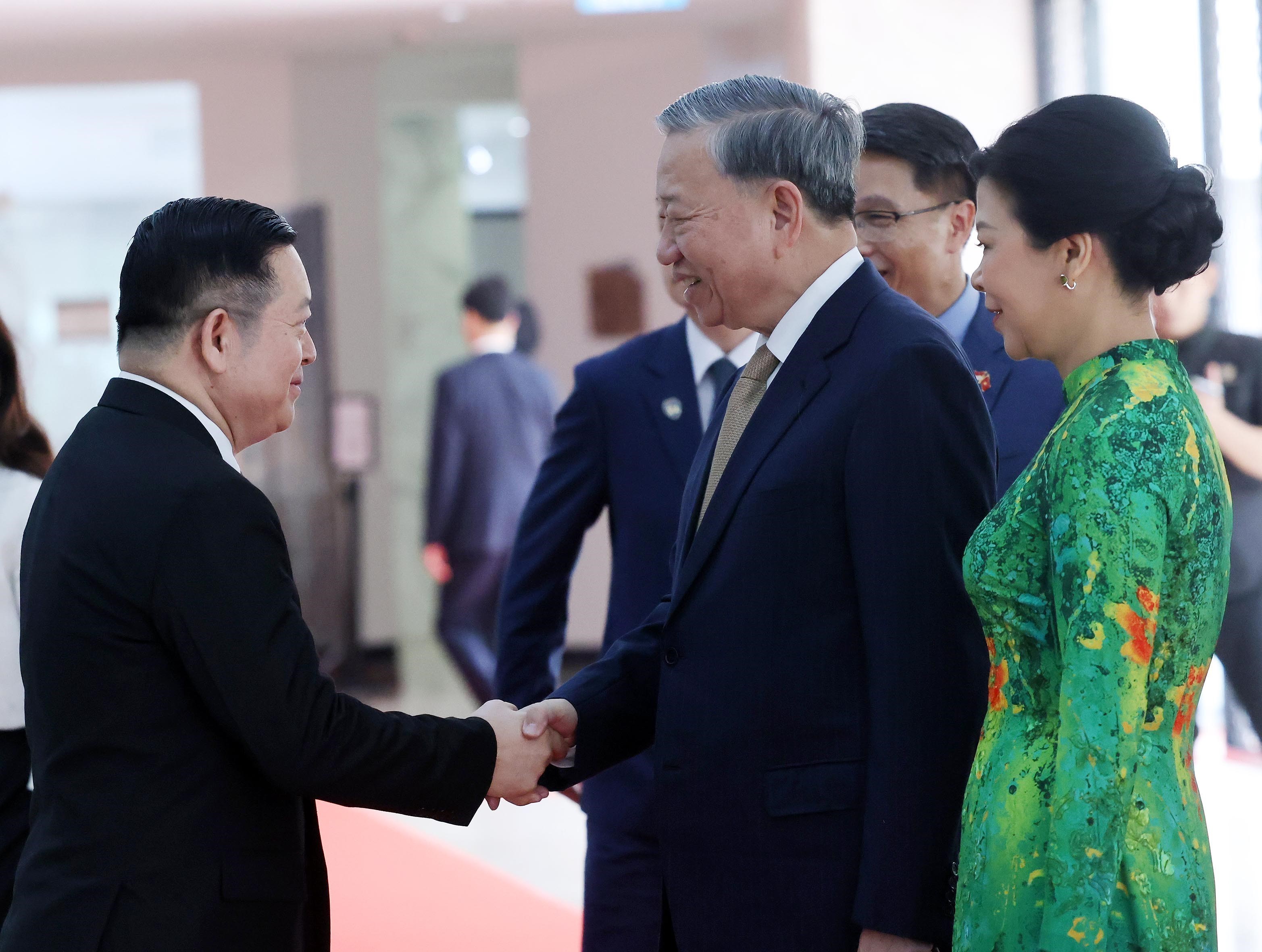
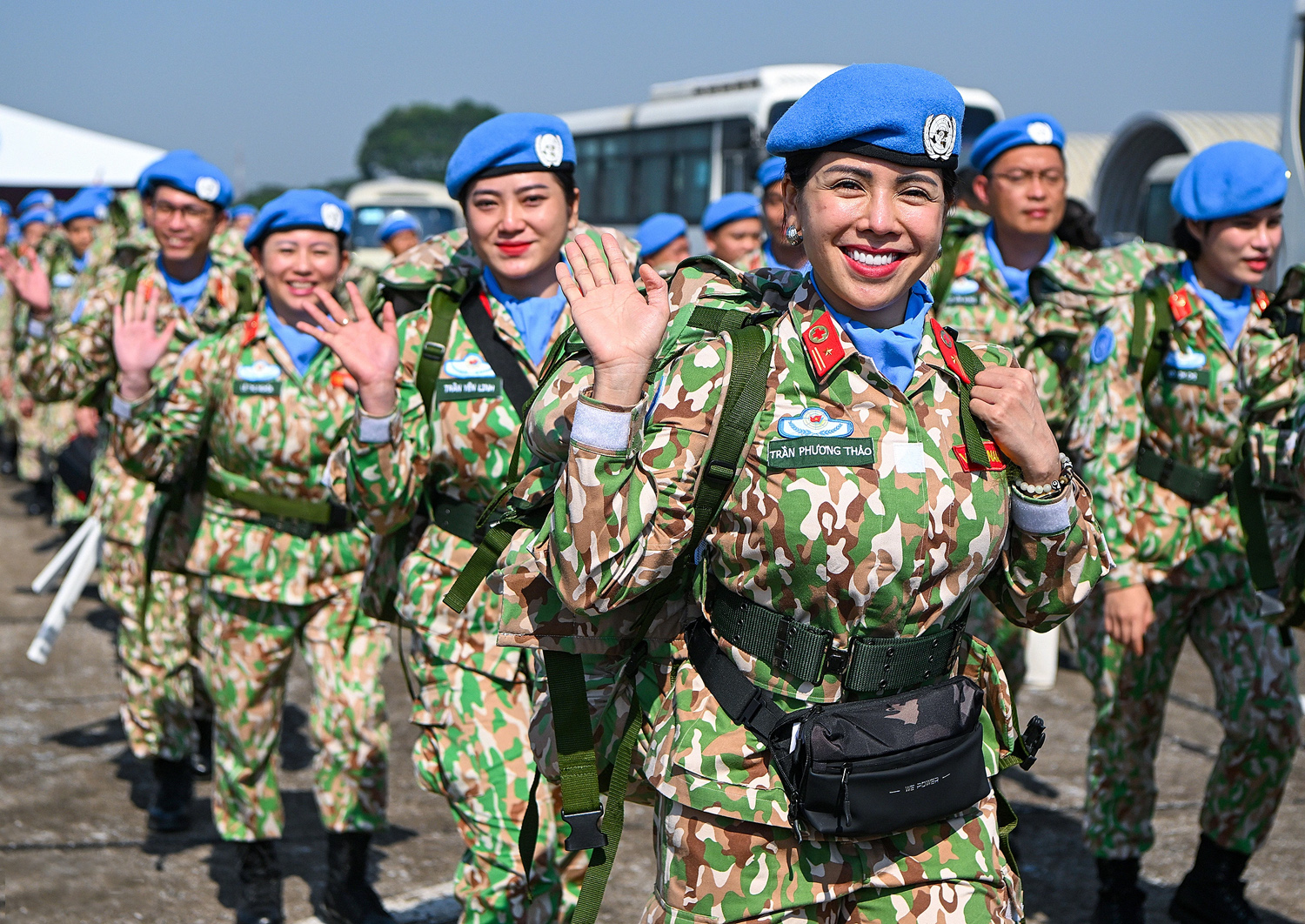
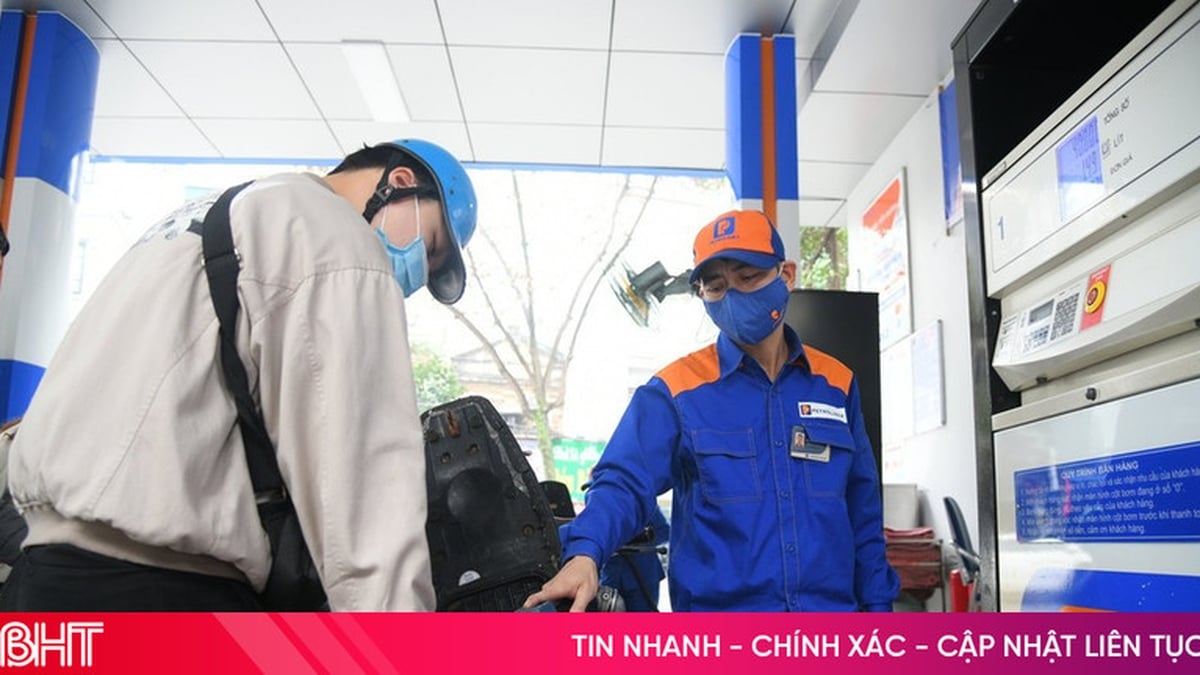
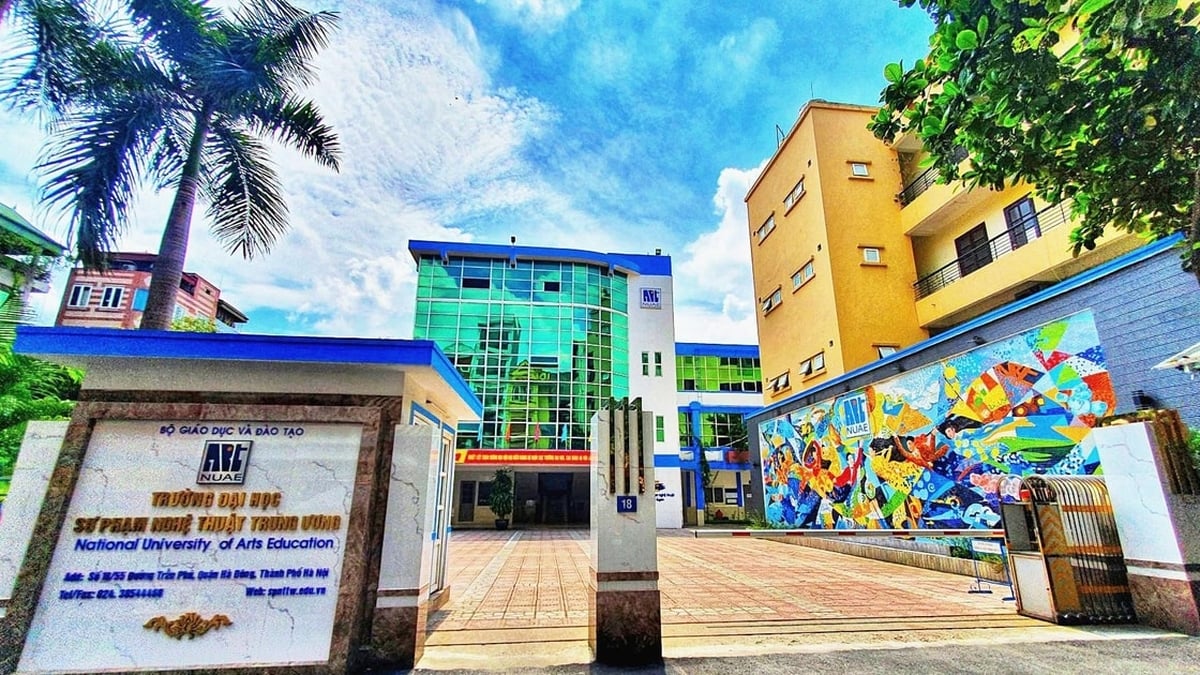
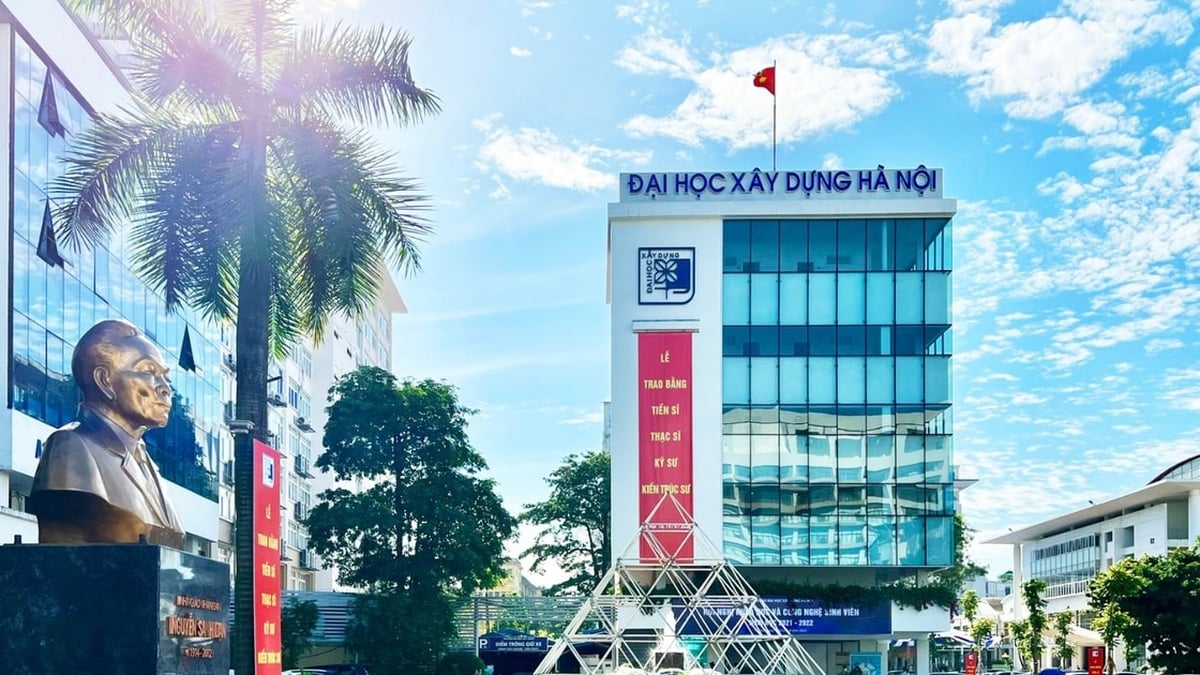
![[INFOGRAPHIC] Open-back headphones, look like a... pill](https://vphoto.vietnam.vn/thumb/1200x675/vietnam/resource/IMAGE/2025/7/16/cd63f007ad404018aa504c1009ce19ba)
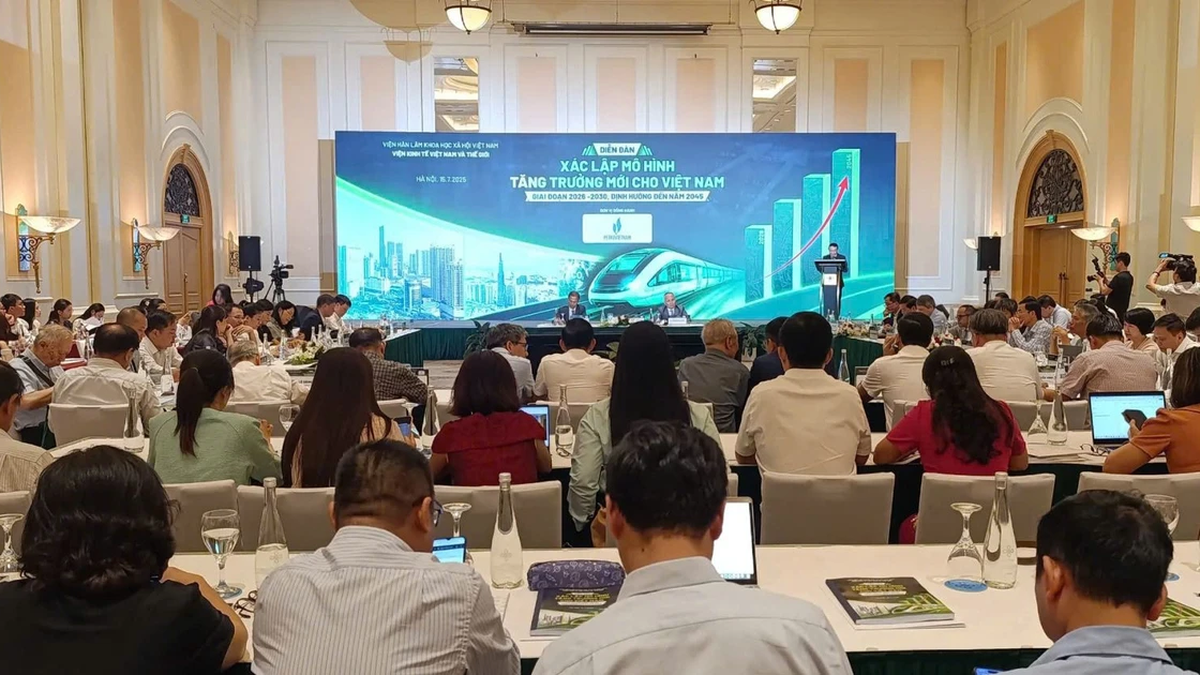
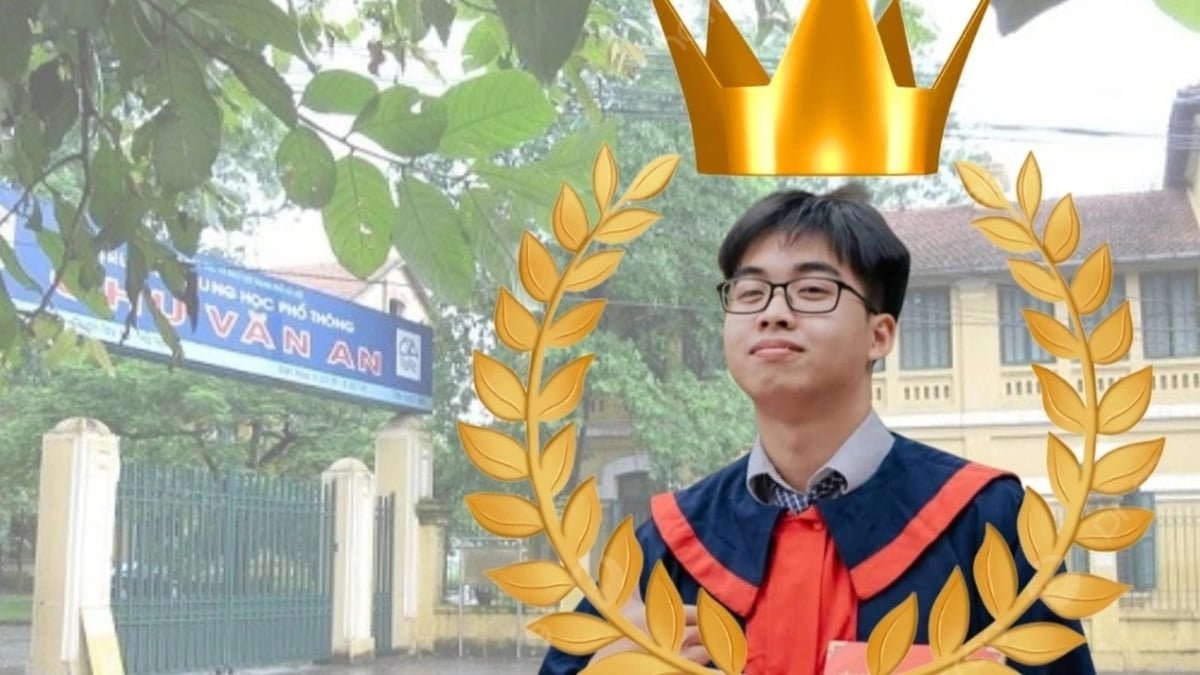
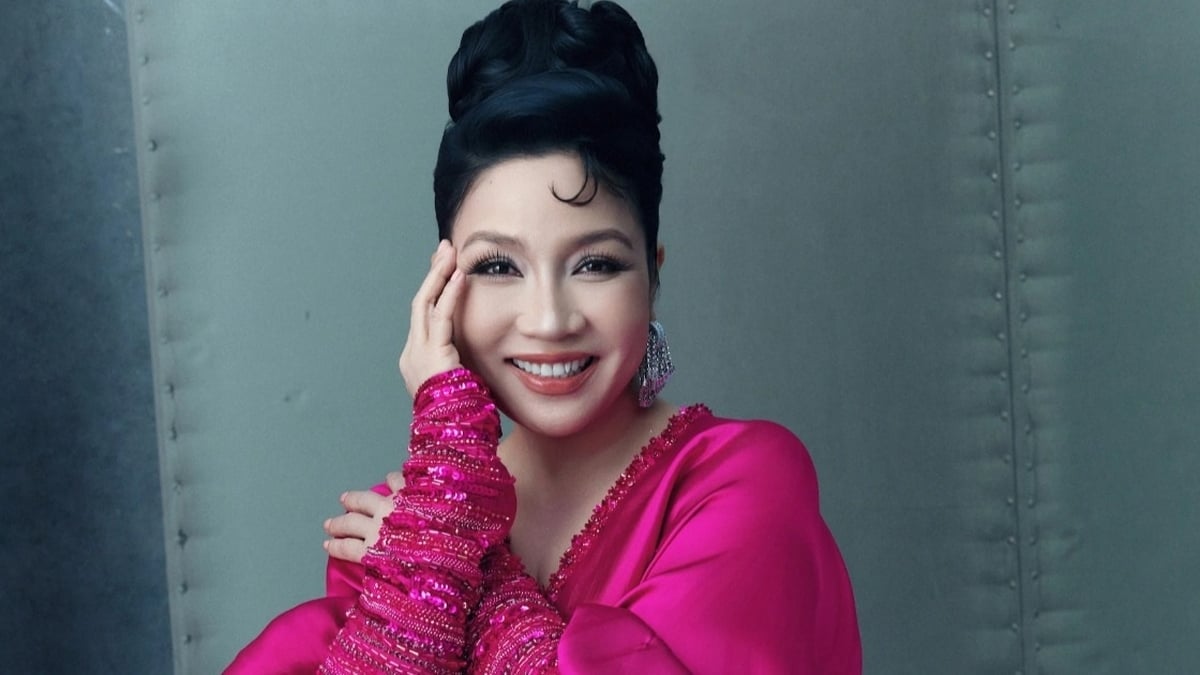
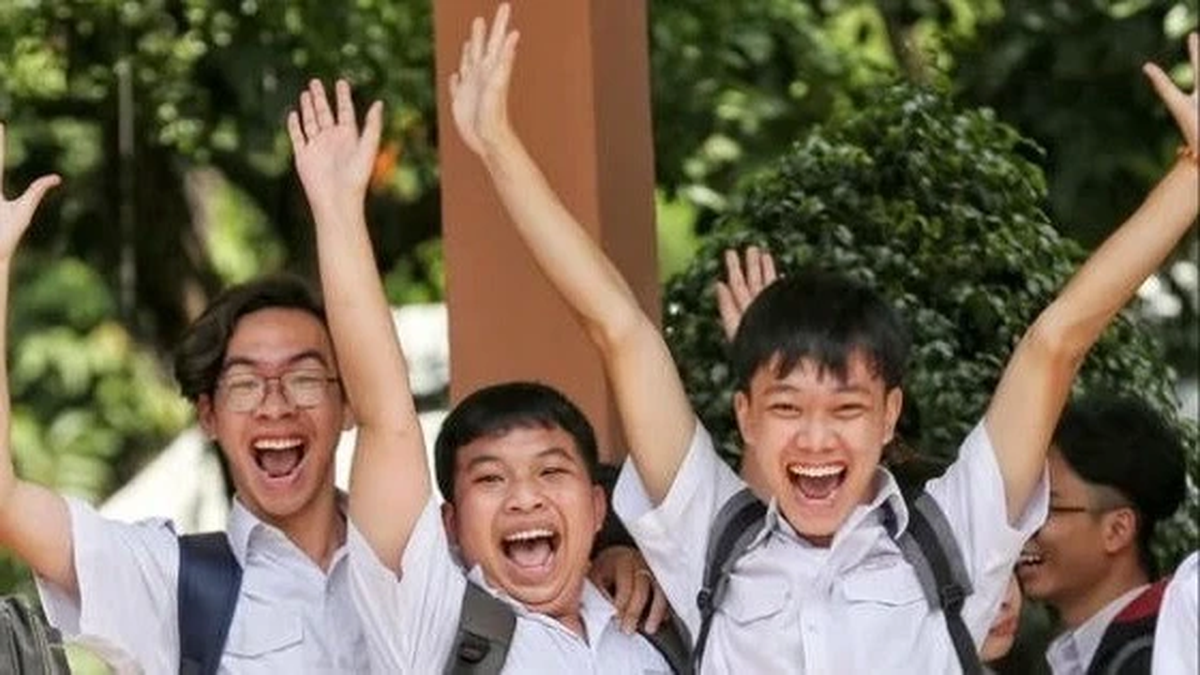
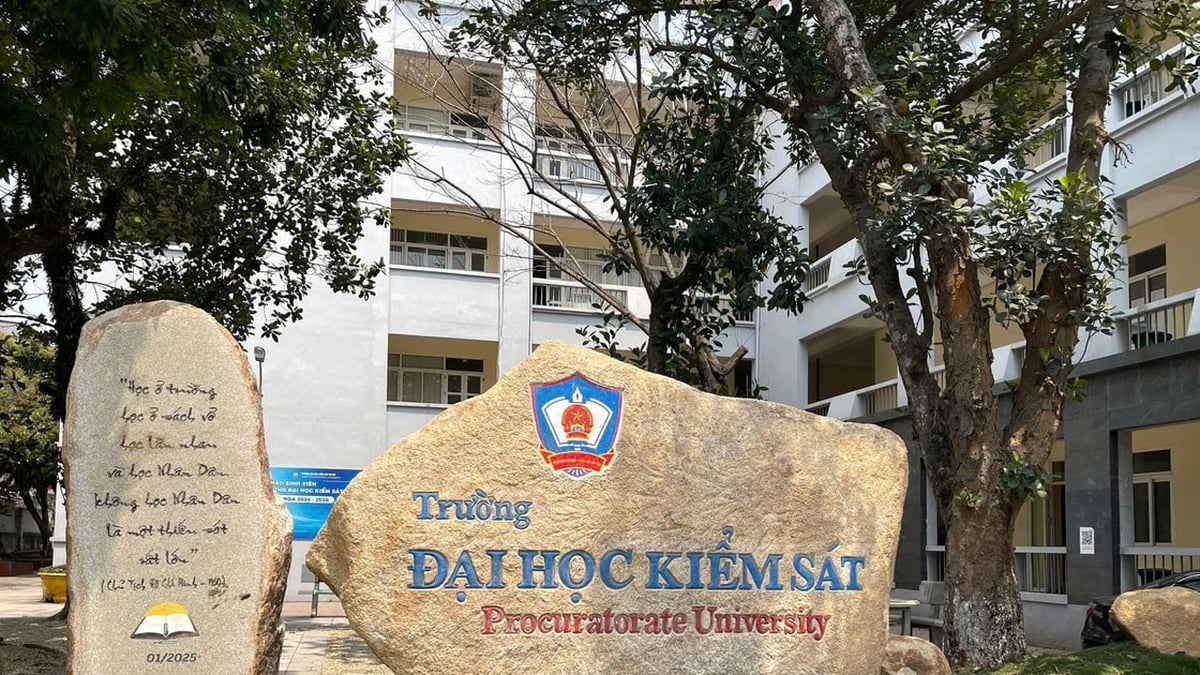

































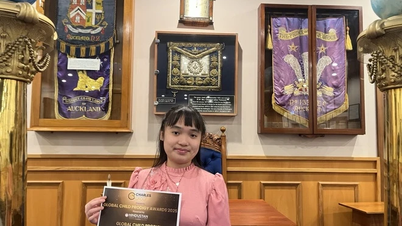
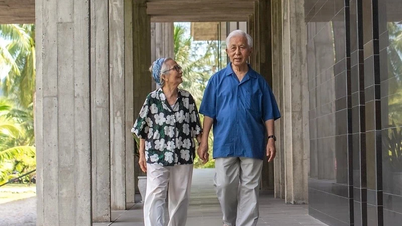

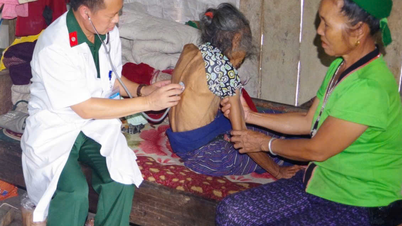







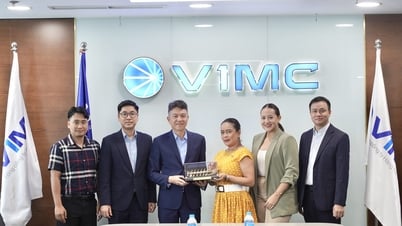

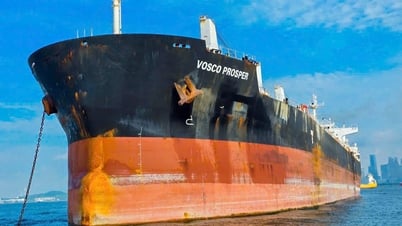

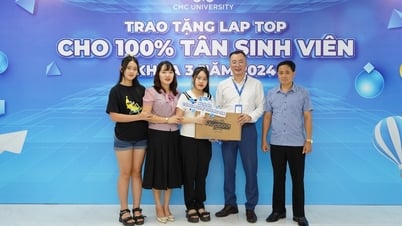

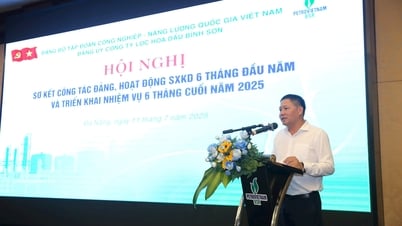

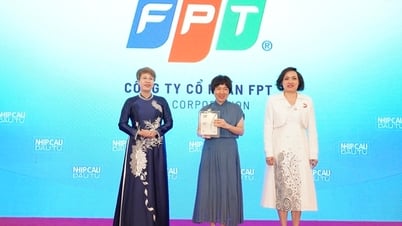

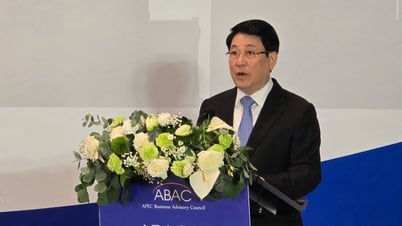

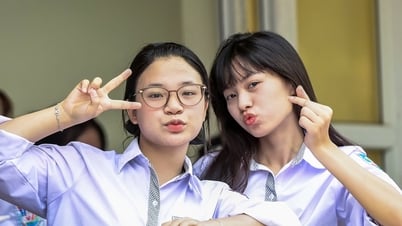
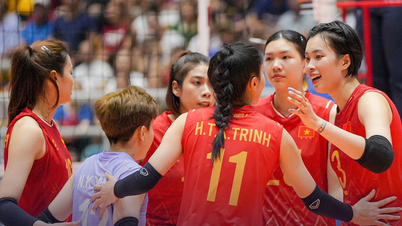
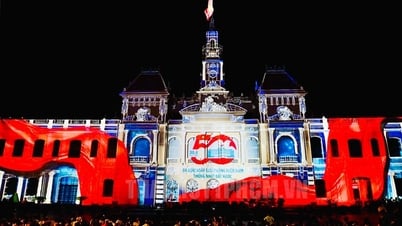
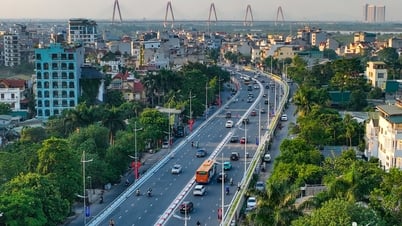
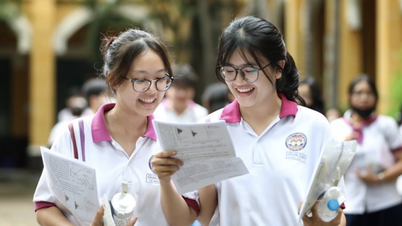
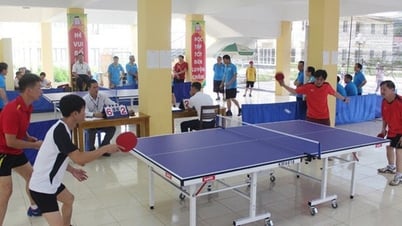

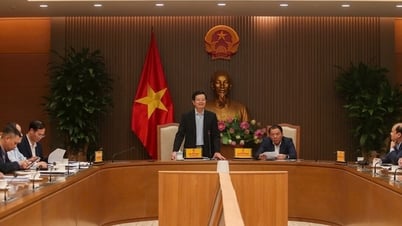
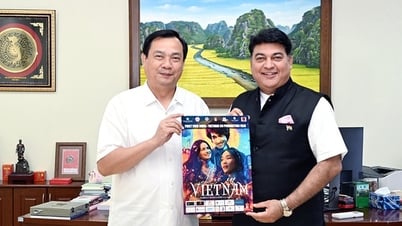
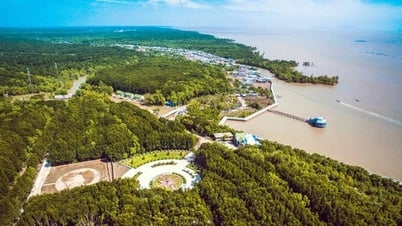
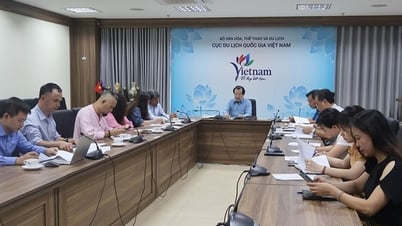





















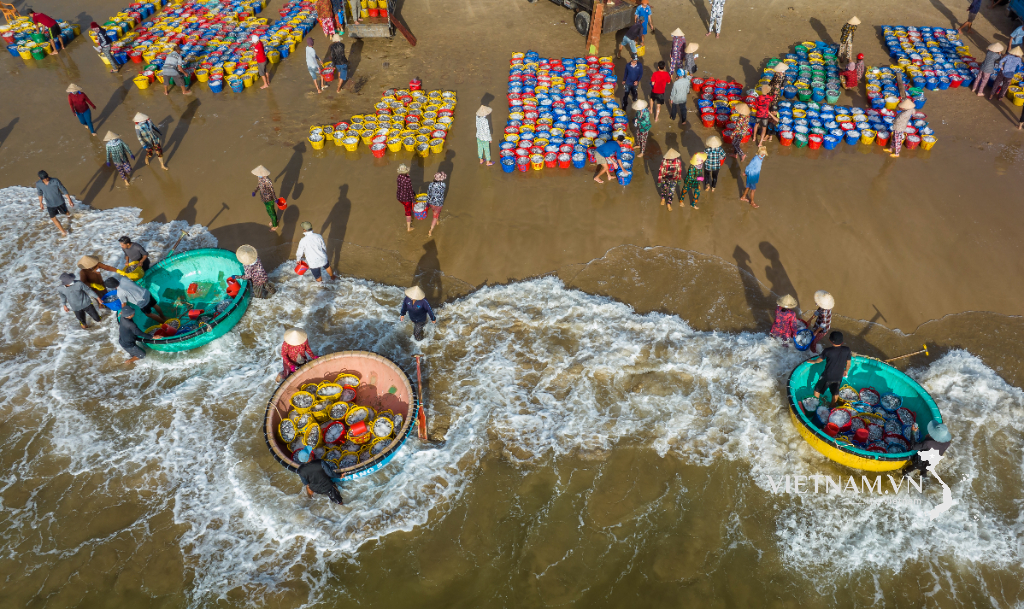


Comment (0)